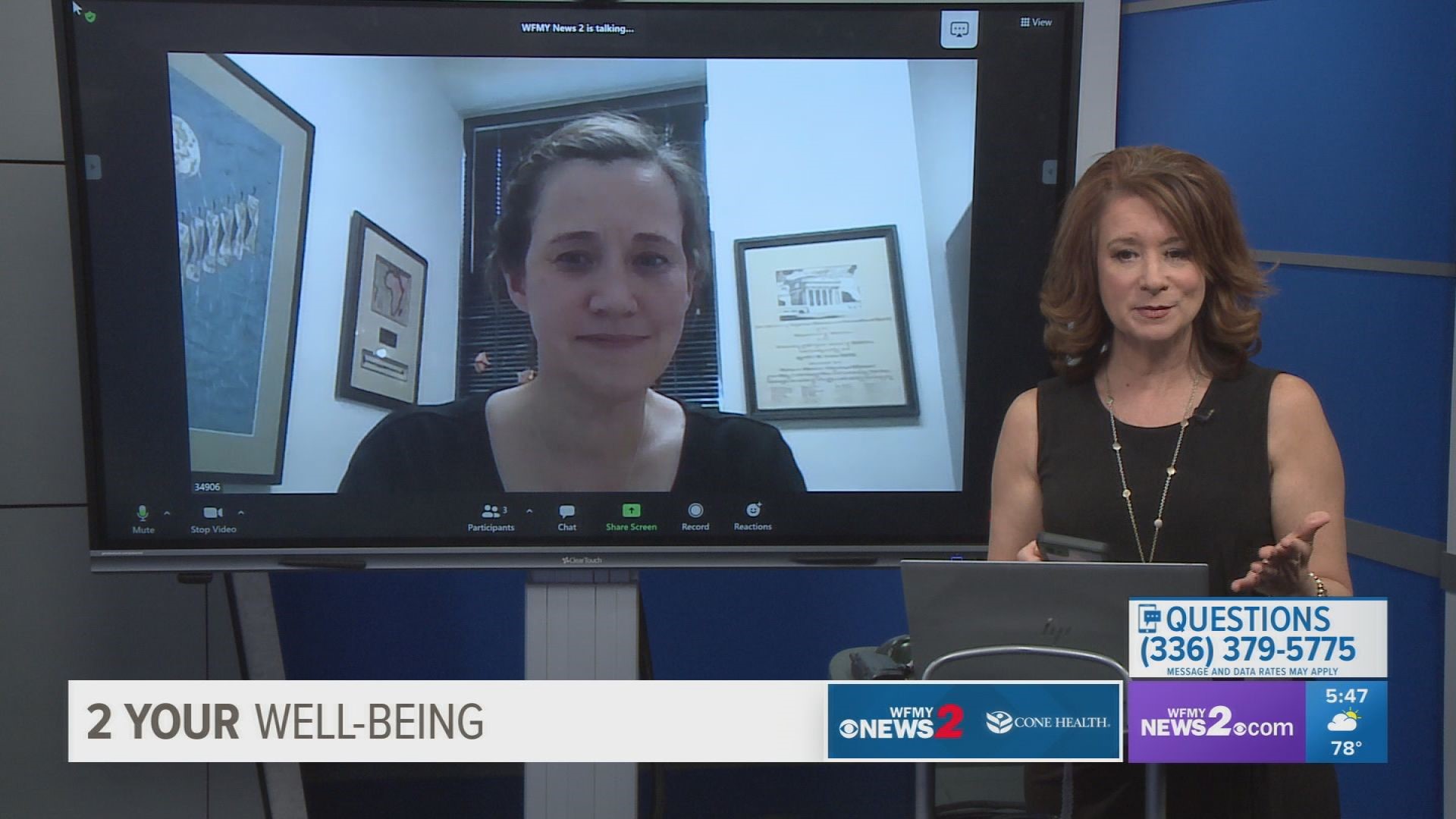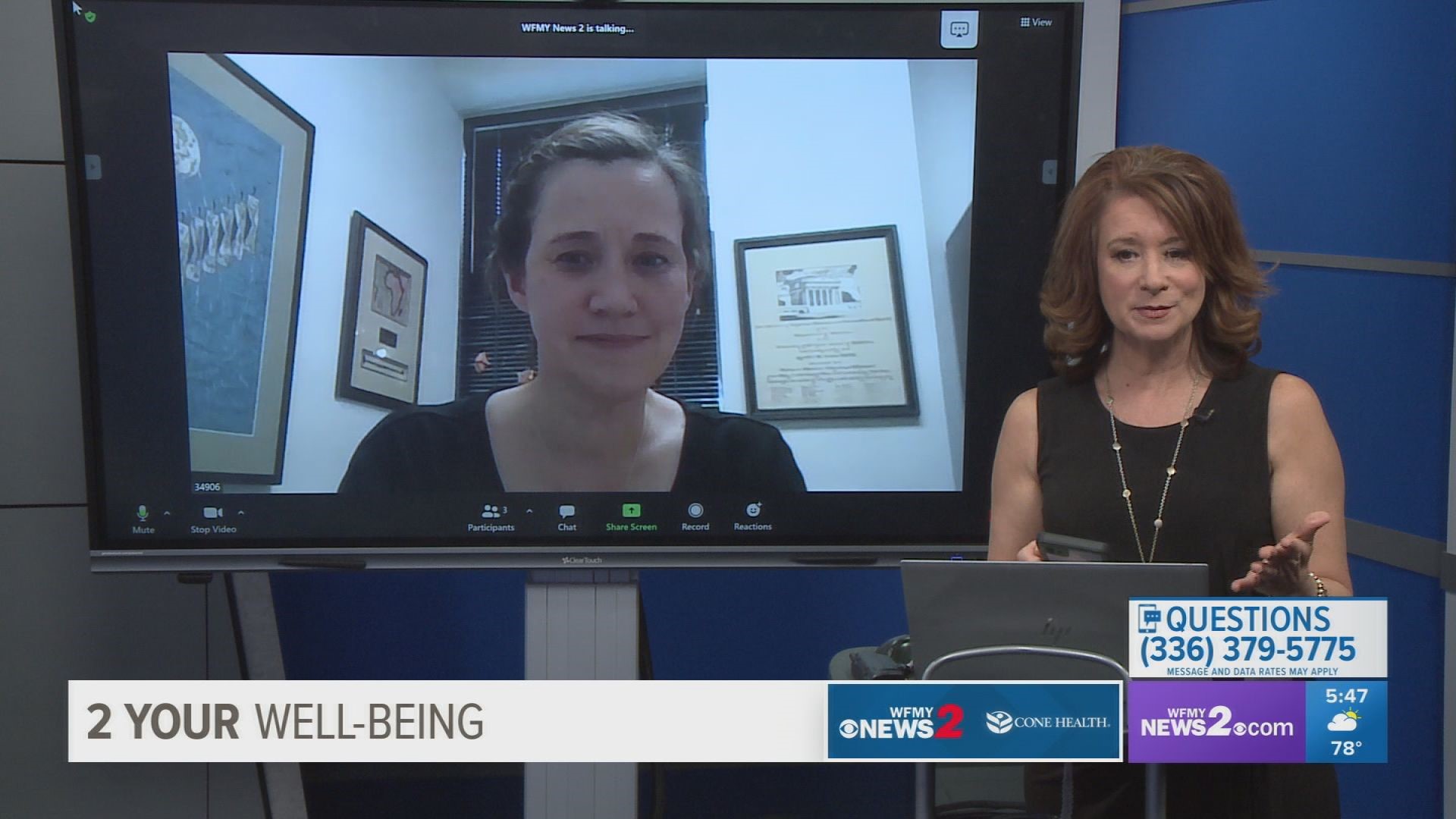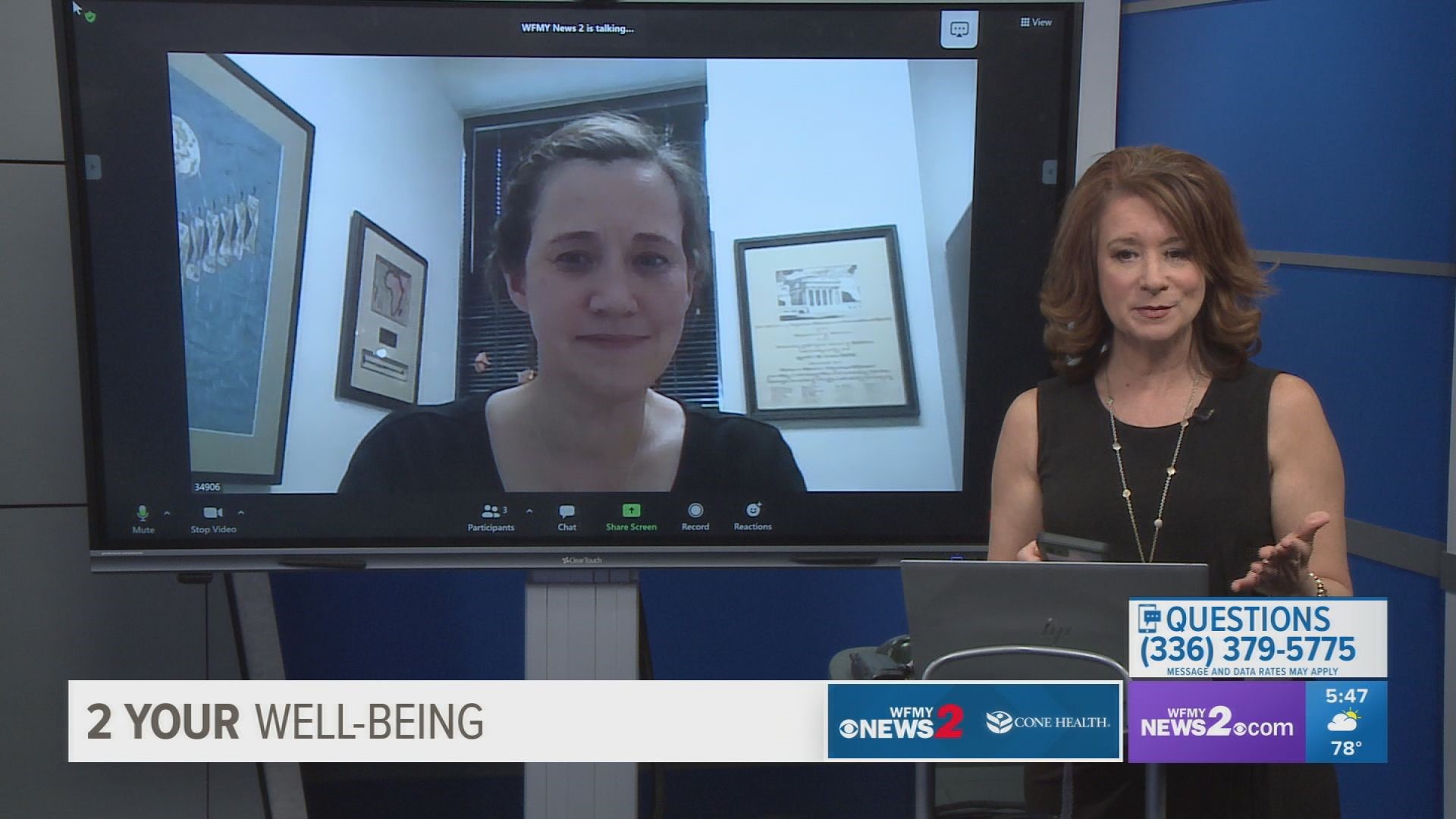GREENSBORO, N.C. — The CDC warned of a possible fourth wave of COVID-19 cases in the U.S. as more states loosen restrictions and more people start to feel comfortable traveling as the vaccine is distributed.
Cone Health's Infection Prevention Medical Director Doctor Cynthia Snider joins us for today's 2 Your Well-Being segment, telling us how concerned we should be and what we can do to prevent another wave.
With areas loosening restrictions, spring break travels and COVID variants, the CDC recently warned about a possible fourth wave of COVID-19. How concerned should we be about a surge in cases?
Dr. Snider says in order to hit the target of herd immunity, more people in the community need to be vaccinated. She estimates only 40% of people ages 18 and up are at least partially vaccinated. Increased traveling without masks puts the community at a greater risk.
Could another wave of COVID-19 occur? If so, how concerned are you that it may happen or are you already seeing evidence of that?
"Our levels currently in the state represent where we had been probably in October," Snider said. She said to fight another wave in the Triad we need to keep in mind there are variants that are still a threat and follow the three W's.
Can you review what fully vaccinated means, how to apply that to masking, social distancing, etc. and how not following those guidelines could influence another wave?
If someone gets either the Pfizer or Moderna vaccine, they are considered fully vaccinated two weeks after receiving their second dose of the vaccine. For those that received the Johnson & Johnson vaccine, they are considered fully vaccinated two weeks after their single dose.
Could traveling with friends and family be risky or possibly cause an increase? What are tips for safe traveling?
Outdoor activities are much less risky than indoor activities with poor ventilation. You do have increased protection with the vaccine than if they weren't vaccinated. If someone flies, they should still wear their mask.
Do the vaccines protect against the new variants?
The vaccines do a good job at preventing severe illness. You could still see flu-like symptoms, but more than likely nothing that would make you need hospital attention. The variants are more contagious and are more prevalent in people younger. Masking and hand washing are the best ways to protect yourself from the variants. Limit the number of risks to limit the chance of spreading the virus.



